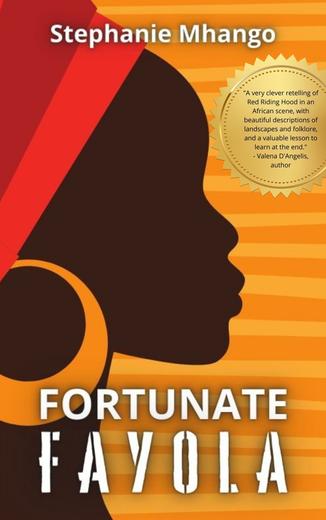
Age:
High School
Reading Level: 5.9
Chapter 1
They say a name defines who you will become in life. Fayola never believed that. Nothing "fortunate" had ever occurred to her. Still, she always appreciated the sentiment expressed by her late parents in naming her.
She knew she was not the prettiest of the girls. She was often told that her dark skin and her too-big eyes made people feel like they were being watched by a snake.
Her survival depended on how well she could marry and she was not the most cunning of women. She did not end up marrying well. Her lobola (bride price) cattle died of mysterious causes in the first week of her marriage.
She married a farmer who was not good at farming - or fathering. She gave birth to their beautiful son. The farmer ignored him.
The farmer ended up dying at the frontlines, fighting off an ambush raid from a neighboring tribe. Many other men died in that fight as well. The working force decreased, which caused a horrible famine in the village.
Her husband did not have a brother who could marry her, so she had to fend for her son herself. It felt like an impossible task.
Chapter 2
One day, while Fayola attended to the needs of the king's consort, her problems seemed to be answered. According to the local women, people had begun to take their children into the woods to leave them at the base of an ancient Baobab tree. After three days, these mothers would then return to the tree and find their children plump, healthy, and unharmed, waiting for them. After that, the children would never know hunger, despite the famine.
Fayola and the other villagers had always believed that their tribe had settled on land that was rich with magic. And Fayola was desperate. Desperation can blur the lines between logic and insanity, even for those who don't believe in magic.
So, with the golden heart of a mother but the naivete of a fool, Fayola left her baby bundled at the base of the Baobab. After three days, she eagerly raced to the river to find her child as plump as he was before the famine.
However, he was not there. And so she waited and waited and waited for her son to be magicked to the place she'd left him. But he never came.
Chapter 3
Overcome with grief and shame, Fayola tore her clothes and ran to the forest. There, she wandered for what felt like years. At last, she came to a shabby-looking mud hut in the deep of the woods.
She knocked on the termite-infested door, hoping that whoever lived there could spare her some food and shelter for the night.
An old, wrinkly hag with short, sparse hair answered the door. Her gravelly voice was the eeriest Fayola had ever heard. She sounded like five people were talking at once when she spoke.
Her eyes were small pebbles embedded deep within the wrinkles of her face.
Fayola explained her situation to the old woman. To her surprise, she was met with empathy. The old woman allowed her to shelter there until the morning.
In the hut there were two beds: one made of nails, and the other made of soft-looking heather. When asked where she wanted to sleep, Fayola chose the bed of nails.
When the morning came, Fayola swept the hut and made porridge for the Ambuya as thanks. (Ambuya means grandmother. In many African cultures, younger people do not address their elders by their names, but by the title they would have if they were a relative.)
At breakfast, Fayola was asked if she wanted the porridge bowl mixed with pounded groundnuts and honey, or the plain bowl of porridge without groundnuts and honey. Fayola chose the plain bowl to eat.
As she was about to leave, the Ambuya asked Fayola if she wanted to earn some stale bread by plaiting her hair, or if she would rather relax before continuing her journey. Fayola chose to plait the Ambuya's hair.